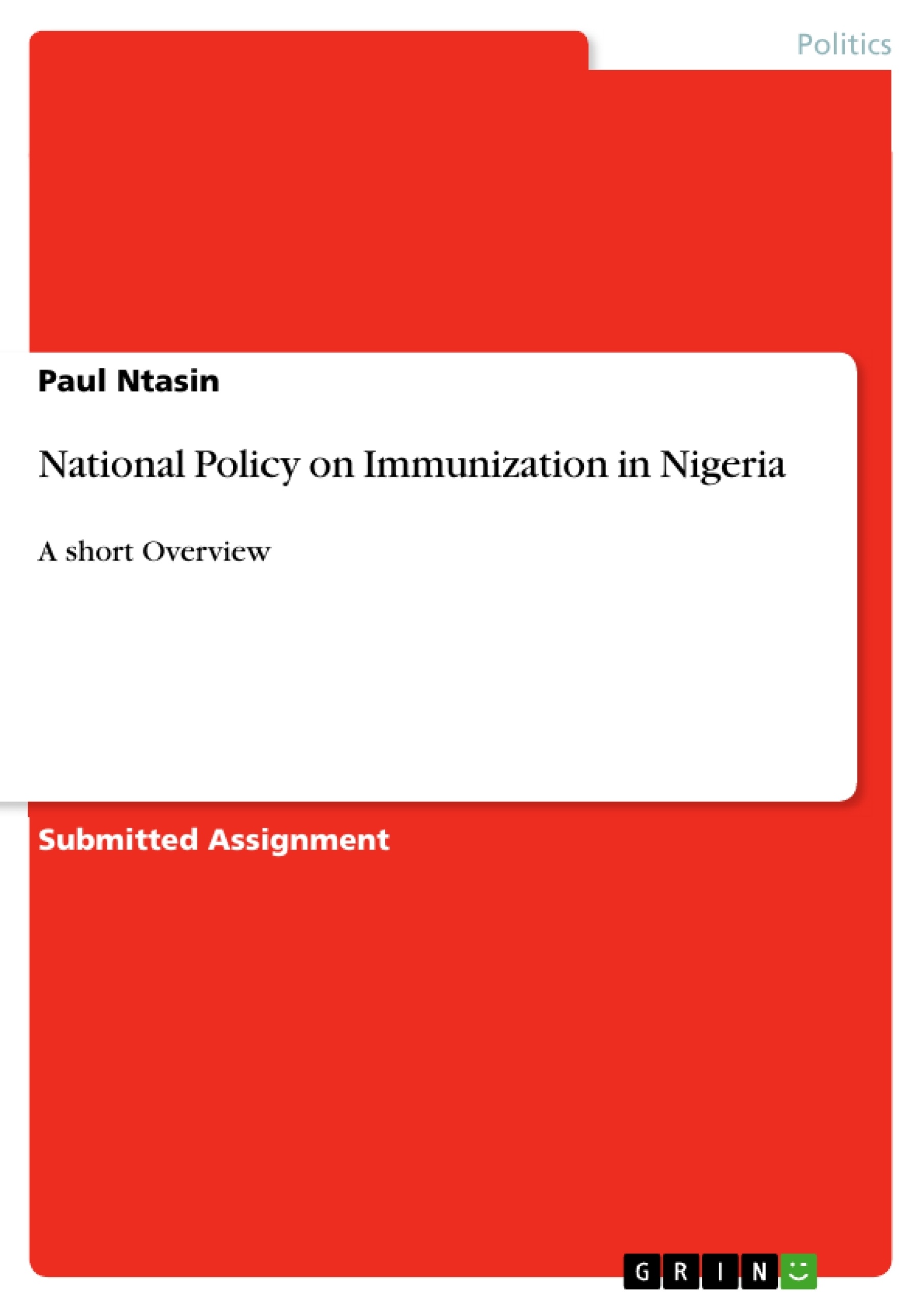A national immunization program (NIP) is the organizational component of Ministries of Health charged with preventing disease, disability, and death from vaccine-preventable diseases in children and adults. A NIP is a government program that operates within the framework of overall health policy. The national immunization program is used interchangeably with the Expanded Program on Immunization (EPI) that originally focused on preventing vaccine- preventable diseases in children. All countries have a national immunization program to protect the population against vaccine-preventable diseases.
Table of Contents
- Introduction
- National Immunization Policy
- Goals of Vaccination Policies
- Compulsory Vaccination
- National Policy on Immunization in Nigeria
- Factors Affecting Routine Immunization in Nigeria
Objectives and Key Themes
This document examines the national immunization policy and its impact, focusing on the case of Nigeria. It explores the goals of vaccination policies, the controversies surrounding compulsory vaccination, and the challenges faced by Nigeria's national immunization program.
- The role of government in public health through vaccination policies
- The ethical and societal implications of compulsory vaccination
- The challenges of implementing effective immunization programs in developing countries
- Factors affecting immunization coverage and the impact on public health
- The importance of herd immunity and its role in disease prevention
Chapter Summaries
- Introduction: This section defines vaccination policy and discusses its purpose in disease eradication and herd immunity. It highlights the varying approaches to vaccination, including voluntary and mandatory programs, and the cost-benefit analyses that support vaccination policies.
- National Immunization Policy: This section describes the role of the National Immunization Program (NIP) in preventing vaccine-preventable diseases in children and adults. It emphasizes the importance of the program in achieving public health goals.
- Goals of Vaccination Policies: This section outlines the objectives of vaccination policies, focusing on the provision of individual immunity and the creation of herd immunity to protect vulnerable populations. It highlights the significant impact of vaccination in reducing childhood mortality.
- Compulsory Vaccination: This section delves into the history of compulsory vaccination policies, including examples from England, Wales, and the United States. It examines the rationale for compulsory vaccination, including the reduction of infection rates and the ethical considerations involved. The section also discusses the opposition to compulsory vaccination, including ethical, political, and religious objections. It explores the ethical dilemmas faced by healthcare providers in persuading vaccine-hesitant individuals and the legal implications of mandatory vaccination policies.
- National Policy on Immunization in Nigeria: This section focuses on the implementation of the Expanded Program on Immunization (EPI) in Nigeria and its evolution into the National Program on Immunization (NPI). It highlights the challenges faced by the program, including declining immunization coverage and the impact on child health. It also mentions the establishment of the Interagency Coordination Committee (ICC) for immunization.
Keywords
Key topics covered in this document include: national immunization policy, vaccination policies, compulsory vaccination, herd immunity, vaccine-preventable diseases, childhood mortality, Expanded Program on Immunization (EPI), National Program on Immunization (NPI), Interagency Coordination Committee (ICC), Nigeria, and public health.
- Quote paper
- Paul Ntasin (Author), 2019, National Policy on Immunization in Nigeria, Munich, GRIN Verlag, https://www.grin.com/document/975385



